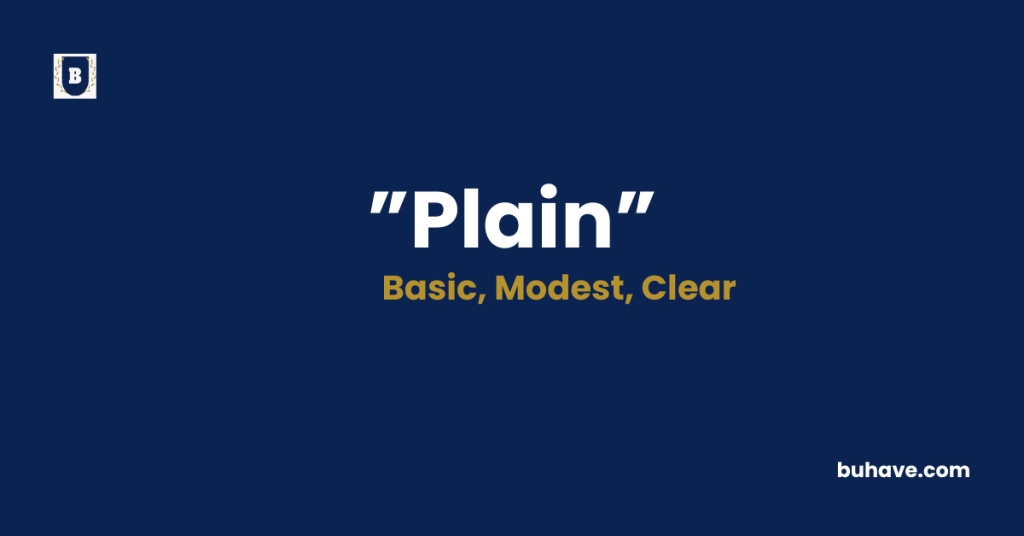The word Plain (adjective) describes something that is simple, without decoration, or easy to understand. In this guide, you’ll learn the full definition, synonyms, antonyms, etymology, and real-life examples of how to use Plain correctly in sentences.
Plain Explained in Depth
A complete and detailed guide to the word Plain including meaning, definition, examples, etymology, synonyms, and antonyms.
Meanings of Plain
Plain means simple or unadorned in appearance, speech, or manner.
Definition
Plain refers to something that is not fancy, elaborate, or complex often basic, straightforward, and easily recognizable. It can also describe something that is clear and easy to understand without hidden meaning.
Etymology
The word plain comes from Latin planus, meaning “flat or level.”
It passed into English through Old French plain, also carrying the sense of “simple or clear.”
Example Sentences
- She wore a plain white dress without any patterns.
- The instructions were written in plain English.
- He prefers plain food without too many spices.
Plain Synonyms
- Simple
- Basic
- Unadorned
- Modest
- Clear
- Uncomplicated
- Straightforward
- Ordinary
- Undecorated
- Direct
Plain Antonyms
- Fancy
- Ornate
- Complex
- Elaborate
- Decorative
- Luxurious
- Vivid
- Intricate
- Detailed
- Flamboyant
FAQs about Plain
Here are some frequently asked questions (FAQs) about the word “Plain”
1. What does “plain” actually mean?
It means something simple, clear, or without decoration or complexity.
2. Can “plain” describe people?
Yes, it can describe someone with simple or modest appearance or style.
3. Is “plain” always used positively?
Not always. It can be neutral, positive for clarity, or negative when implying lack of interest or dullness.
4. Does “plain” mean boring?
Sometimes, yes—if something is overly simple, it may be considered boring or unexciting.
5. Is “plain” the opposite of “fancy”?
Yes, in most contexts, “plain” is considered the opposite of “fancy” or “ornate.”

















